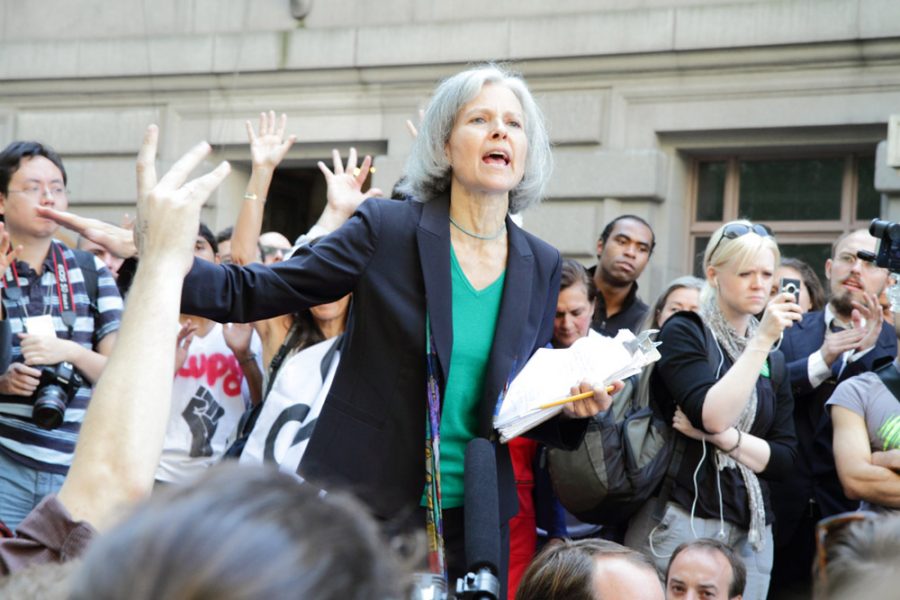Political underdog challenges greed
Green Party candidate Jill Stein provides fresh perspectives on current issues.
March 15, 2016
Voters must spend more time examining the underdogs of American politics in a race dominated by elephants and donkeys.
Third party politics allow voters to explore more radical policies untainted by special interests. It aids in nurturing a point of view otherwise marginalized by mainstream political parties. In an increasingly polarized presidential race, a third party platform does not try to win an election but push particular issues into the limelight. These issues range from environmental concerns to wealth inequality and rural poverty. Today’s independent politics serve less as a political seat-grabber and more as an intransigent statement against a political landscape dominated by corporate greed and business interests.
Jill Stein
On June 22, 2015, physician and once Green Party nominee for the 2012 presidential election, Jill Stein, announced her run for the 2016 presidency in an exclusive interview with independent news outlet, Democracy Now. Stein, the most prominent third party candidate since Ralph Nader, is known for her bold stance on environmental issues and criticism of “extreme materialism.” Her platform, which was announced at the National Press Club last year, described the need to, “…move our economy from the greed and exploitation of corporate capitalism to a human-centered system that puts people, planet and peace over profit.”
Stein’s rhetoric and policies affirm the issues raised by the Occupy movement, the large demonstrations held in New York City’s financial district in 2011. The movement’s frustration against the 2008 recession and the multi-trillion dollar bailout of banks “too big to fail” was successful in opening dialogue about wealth and income inequality both in the U.S. and around the world.
Resist the corporate assault
Voters, regardless of political affiliation, must resist the corporate assault of political institutions that began when the call for businesses to organize and aggressively influence politics was made by the Powell Memorandum in 1971. With the Supreme Court’s 5-4 decision on Citizens United v. FEC, corporations have gained significant power to influence election outcomes through corporate campaign contributions.
Stein’s criticisms of the interrelationship between money-saturated elections and special interest groups reveal much about our current political system. Sheldon Wolin, the late political theorist, coined the term “inverted totalitarianism” to describe the emerging form of government in the United States. Wolin has cautioned against the formation of an illiberal democracy where corporations employ elaborate and sophisticated public relations tactics and a progressively concentrated media to pacify the population into obedience and passivity. Inverted totalitarianism, according to journalist Chris Hedges, “does not find its expression in a demagogue or charismatic leader but in the faceless anonymity of the corporate state.”
Providing a new dimension
Placing economic interests above societal affairs, especially corporate ones, has rendered our country into what Wolin called a “managed democracy” or a spectator democracy — where citizens are stripped of their civil liberties, rights and privacies guaranteed by the Constitution. In a time where groups have spent at least $690 million of dark money in federal elections and a single group has spent $1.3 million in ads for Senator Marco Rubio in Iowa, citizens need to examine our current election and its intimate tie with a myriad of special interest groups.
Jill Stein will never win the election, but her platform provides voters with a new dimension in a race where well-funded politicians and a xenophobic businessman vie for soundbites and ambitious donors. It is time for the people to rescue a democracy drowning in a sea of money.







